
Hawler: The Heartbeat of Northern Iraq
Hawler, also known as Erbil, is one of the oldest continuously inhabited cities in the world. Located in the Kurdish region of Iraq, it offers a unique blend of history, culture, and modernity. The city is centered around the ancient Citadel of Erbil, a UNESCO World Heritage site that has witnessed over 6,000 years of history. Walking through its winding streets, you can feel the layers of time, from ancient civilizations to the vibrant Kurdish culture of today. Modern Hawler is a bustling city with a variety of attractions. The bustling bazaars are a sensory overload, with colorful textiles, aromatic spices, and local handicrafts. The city's parks and cafes offer a pleasant escape from the hustle and bustle, where you can relax and enjoy traditional Kurdish tea. The food scene in Hawler is diverse, offering everything from hearty Kurdish dishes to international cuisine. For those interested in history and archaeology, the Kurdish Textile Museum and the Erbil Civilization Museum are must-visits. These institutions provide a deep dive into the region's rich heritage. Meanwhile, the Mudhafaria Minaret, also known as Choly Minaret, is another historical landmark that offers stunning views of the city. Hawler is not just about history and culture; it is also a gateway to the natural beauty of the Kurdish region. The nearby mountains and valleys provide opportunities for hiking, picnicking, and exploring traditional Kurdish villages. Whether you are a history buff, a foodie, or an outdoor enthusiast, Hawler has something to offer.
Local tips in Hawler
- Visit the Citadel of Erbil early in the morning to avoid crowds and enjoy the peaceful atmosphere.
- Dress modestly to respect local customs, especially when visiting religious sites.
- Learn a few basic Kurdish phrases; locals appreciate the effort and it can make your visit more enjoyable.
- Try the local cuisine, especially dishes like kebabs, dolma, and biryani.
- Carry cash, as not all shops and restaurants accept credit cards.
- Hire a local guide to get the most out of your visit to historical sites.
Hawler: The Heartbeat of Northern Iraq
Hawler, also known as Erbil, is one of the oldest continuously inhabited cities in the world. Located in the Kurdish region of Iraq, it offers a unique blend of history, culture, and modernity. The city is centered around the ancient Citadel of Erbil, a UNESCO World Heritage site that has witnessed over 6,000 years of history. Walking through its winding streets, you can feel the layers of time, from ancient civilizations to the vibrant Kurdish culture of today. Modern Hawler is a bustling city with a variety of attractions. The bustling bazaars are a sensory overload, with colorful textiles, aromatic spices, and local handicrafts. The city's parks and cafes offer a pleasant escape from the hustle and bustle, where you can relax and enjoy traditional Kurdish tea. The food scene in Hawler is diverse, offering everything from hearty Kurdish dishes to international cuisine. For those interested in history and archaeology, the Kurdish Textile Museum and the Erbil Civilization Museum are must-visits. These institutions provide a deep dive into the region's rich heritage. Meanwhile, the Mudhafaria Minaret, also known as Choly Minaret, is another historical landmark that offers stunning views of the city. Hawler is not just about history and culture; it is also a gateway to the natural beauty of the Kurdish region. The nearby mountains and valleys provide opportunities for hiking, picnicking, and exploring traditional Kurdish villages. Whether you are a history buff, a foodie, or an outdoor enthusiast, Hawler has something to offer.
When is the best time to go to Hawler?
Iconic landmarks you can’t miss
Citadel of Erbil
Explore the ancient Citadel of Erbil, a UNESCO World Heritage Site with millennia of history and stunning panoramic views of the city.
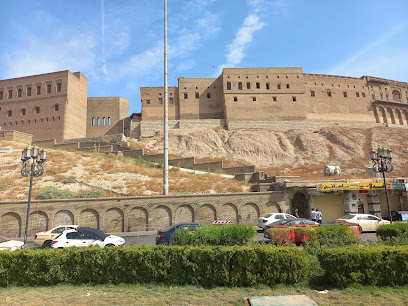
Samî Abdulrahman Park
Escape to Erbil's largest park: a peaceful retreat with gardens, lakes, sports, and cultural events, honoring Kurdish heritage and offering something for everyone.
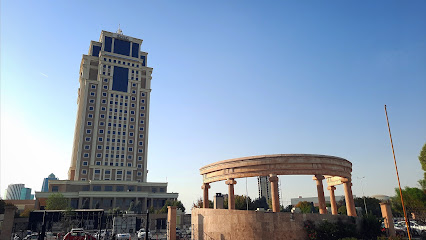
Bekhal Waterfalls
Discover Bekhal Waterfalls in Iraqi Kurdistan: a picturesque escape with cascading waters, lush landscapes, and a vibrant local culture.
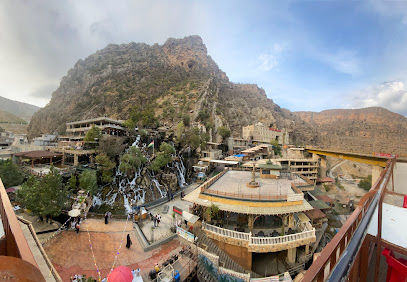
Azadî Park
Escape to Sulaymaniyah's Azadî Park: A vibrant green space offering tranquility, recreation, and a taste of Kurdish culture.
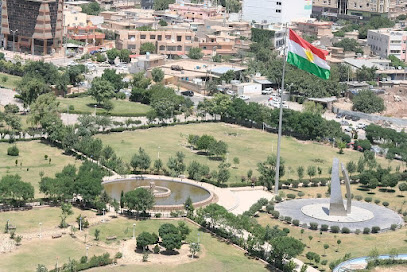
Kirkuk Citadel
Explore the ancient Kirkuk Citadel, a historic landmark with millennia of stories etched into its walls, located in the heart of Kirkuk, Iraq.
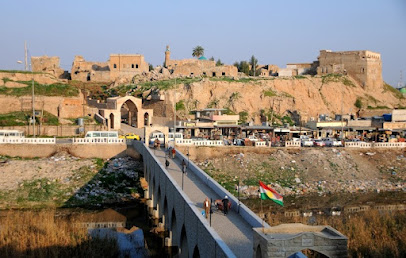
Erbîl qayseri bazar
Explore Erbil's historic Qaysari Bazaar: a vibrant hub of Kurdish culture, crafts, and cuisine, located steps from the ancient Citadel.
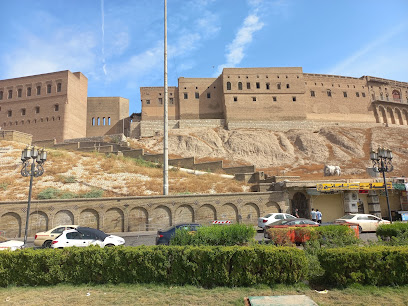
Shanadar Park
Escape to Erbil's heart: Discover tranquility and recreation at Shanadar Park, a green haven for families and tourists.
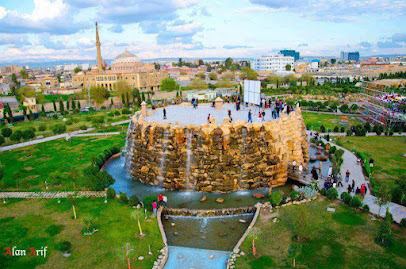
Jalil Khayat Mosque
Erbil's largest mosque, a stunning blend of Ottoman and Abbasid architecture, offering a serene spiritual experience and a glimpse into Kurdish culture.
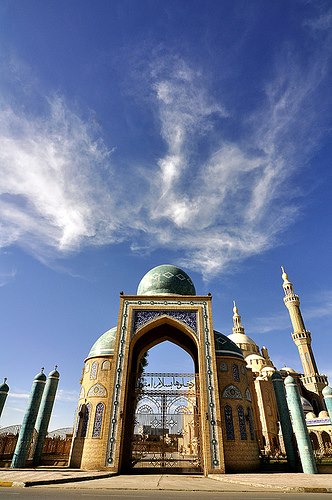
Minara Park
Escape to Erbil's tranquil Minara Park, a green haven with the iconic Mudhafaria Minaret, offering relaxation and a touch of history.
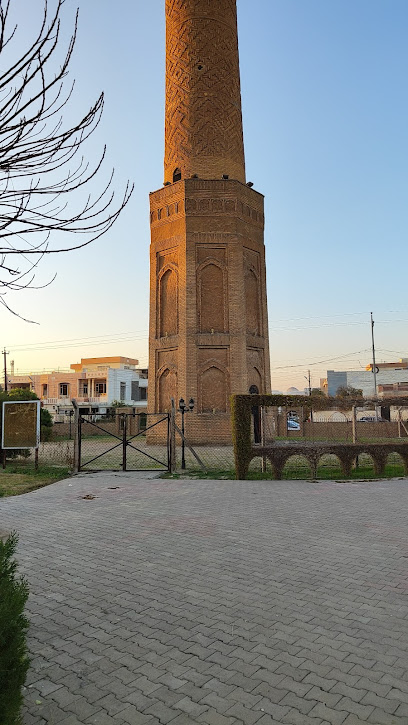
Martyr Monument
A poignant Baghdad landmark honoring Iraqi martyrs, featuring stunning architecture and serene surroundings.
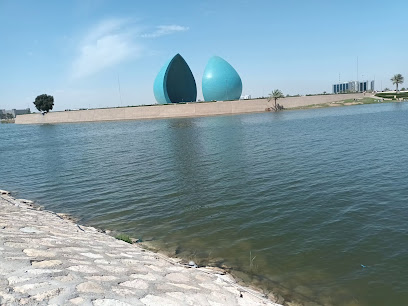
بەردەرکی سەرا Sara Square
Experience the vibrant heart of Sulaymaniyah at Sara Square, a historical landmark offering culture, art, and local charm in Iraqi Kurdistan.
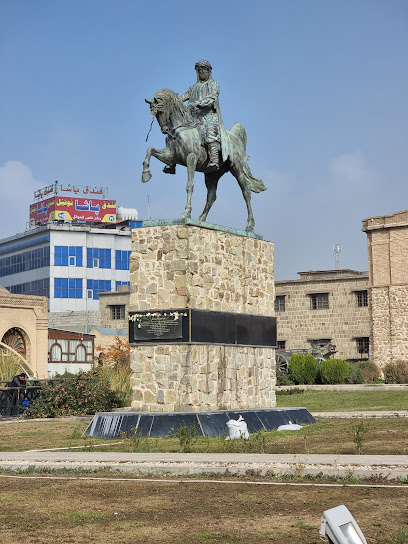
Mar Mattai Monastery
Discover Mar Mattai Monastery: An ancient Syriac Orthodox sanctuary perched atop Mount Alfaf, offering history, spirituality, and breathtaking views.
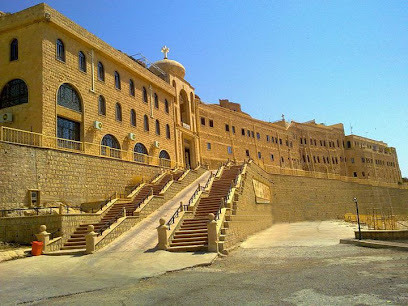
Mosul Museum
Explore millennia of Mesopotamian history at the Mosul Museum, a symbol of resilience and cultural heritage in Nineveh Governorate.
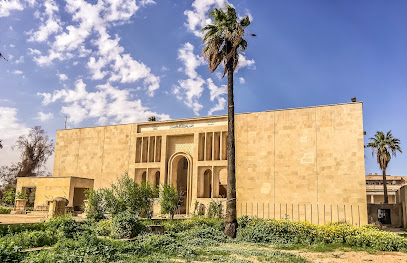
Kurdish Textile Museum
Explore the rich cultural heritage of the Kurdish people through vibrant textiles and traditional craftsmanship at the Erbil Citadel museum.
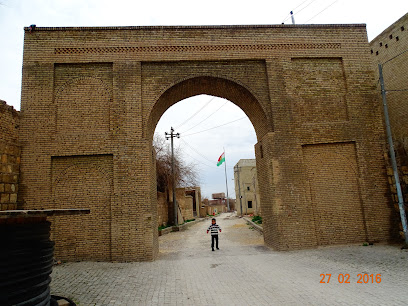
Bashtabya Castle
Explore the historic ruins of Bashtabya Castle in Mosul, a 12th-century fortress on the Tigris River, and a symbol of the city's enduring spirit.
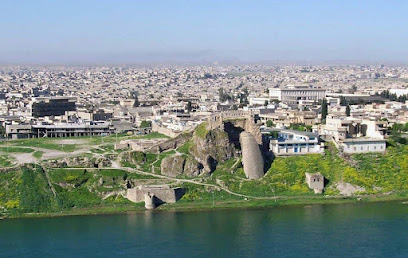
Unmissable attractions to see
Citadel of Erbil
Explore the ancient Citadel of Erbil, a UNESCO site with millennia of history and stunning panoramic views of the vibrant city.
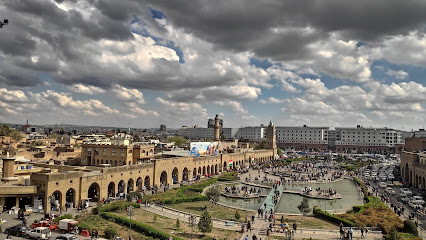
Samî Abdulrahman Park
Escape to Erbil's largest park: a green oasis with walking paths, lakes & sports, symbolizing peace and remembrance in the heart of Kurdistan.
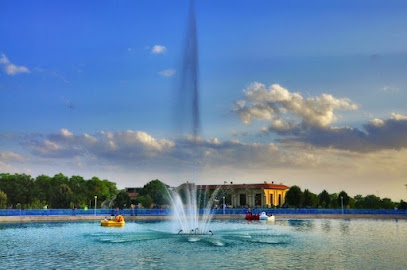
Majidi Land Erbil
Experience thrilling rides, family-friendly entertainment, and unforgettable memories at Erbil's premier amusement park, Majidi Land.
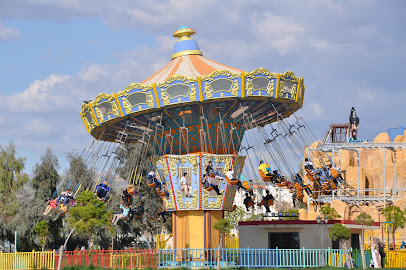
Shanadar Park
Escape to Erbil's tranquil heart: Shanadar Park, a modern oasis with gardens, art, and family fun.
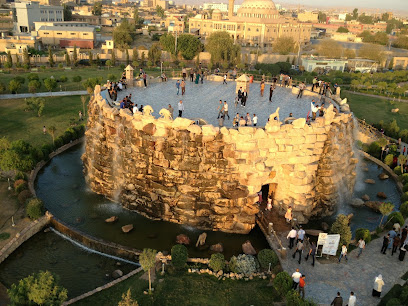
Jalil Khayat Mosque
Erbil's largest mosque, a stunning blend of Ottoman and Abbasid architecture, honoring Kurdish heritage and modern design in a religious and cultural landmark.
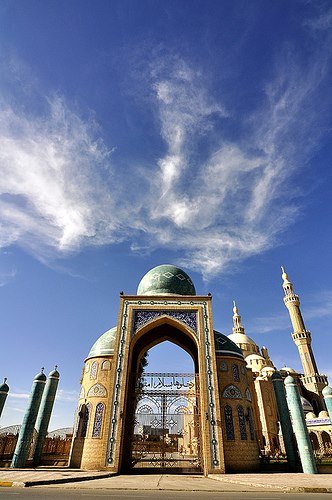
Minara Park
Discover Minara Park in Erbil: a serene escape offering history, nature, and cultural experiences for an unforgettable visit.
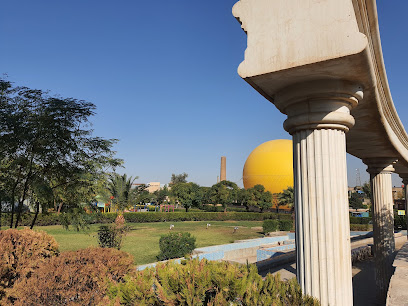
Peshmarga Park
Escape to Erbil's serene Peshmarga Park: a green retreat with sports, family fun, and a tribute to Kurdish heritage.
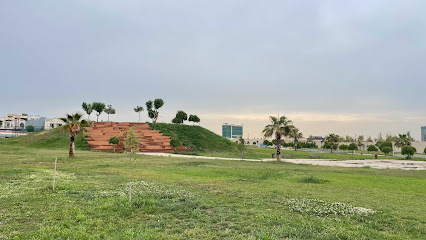
Family Fun
Experience thrilling rides, family fun, and unforgettable memories at Erbil's largest amusement park, located next to Family Mall.
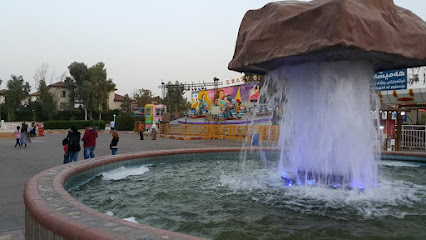
Aqua Tarin Water Park
Experience thrilling slides and relaxing pools at Aqua Tarin Water Park, the largest outdoor water park in Iraq, perfect for family fun in Erbil.
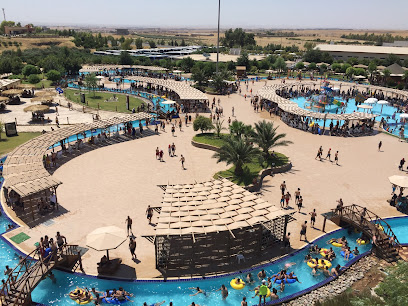
Erbil Zoo
Discover diverse wildlife in a family-friendly environment at Erbil Zoo, a premier destination for nature and recreation in Erbil Governorate.
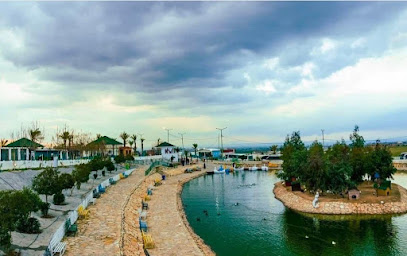
Aqua Park
Cool off and have fun at Aqua Park Erbil, a perfect summer escape for families and thrill-seekers with a variety of water attractions.
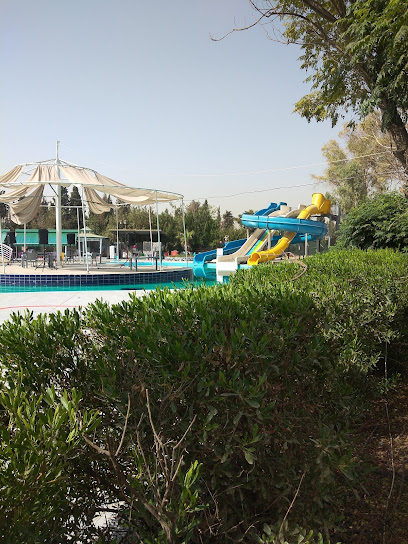
Gilkand Park
Escape to serenity in Erbil's Gilkand Park: green spaces, recreation, and community spirit await in this urban oasis.
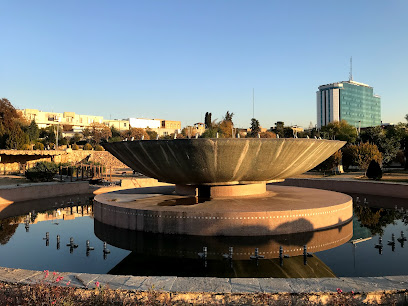
باغی شار
Escape to nature in the heart of Erbil at Baghi Shar Park, a tranquil oasis for relaxation and recreation.
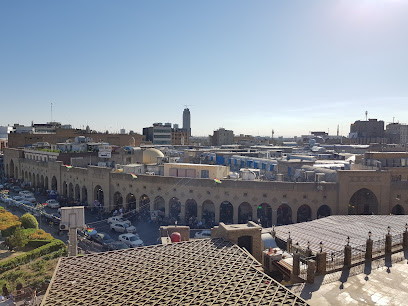
پارکی سامی ئەبدولڕەحمان
Escape to Erbil's largest park: gardens, lakes, and recreation await at Sami Abdulrahman Park.
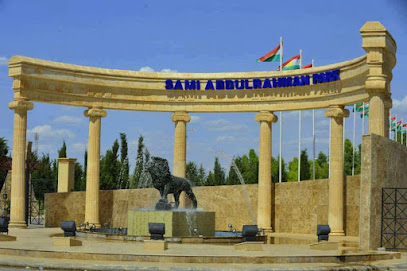
ILLUSION MUSEUM ERBIL
Experience mind-bending exhibits and challenge your perceptions at Erbil's unique Illusion Museum, a world of interactive art and deceptive wonders for all ages.
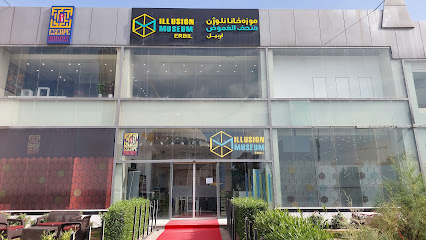
Essential places to dine
TODAY Rest & Cafe
Discover a vibrant dining experience at TODAY Rest & Cafe in Erbil—where local flavors meet international cuisine in an inviting atmosphere.
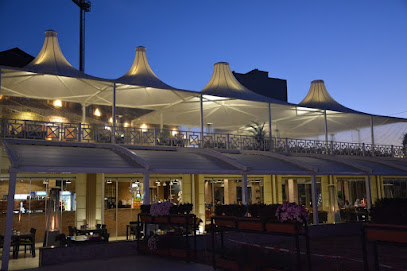
HuQQabaz
Discover HuQQabaz in Erbil - where exquisite Turkish cuisine meets a lively atmosphere for an unforgettable dining experience.
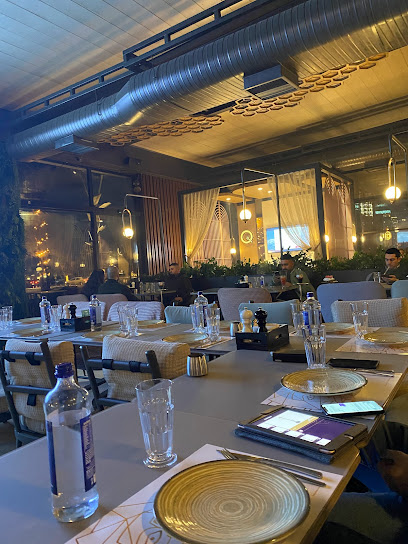
Tablea+ Restaurant مطعم طبلية
Discover authentic Iraqi flavors at Tablea Restaurant in Erbil – where every dish tells a story of tradition.
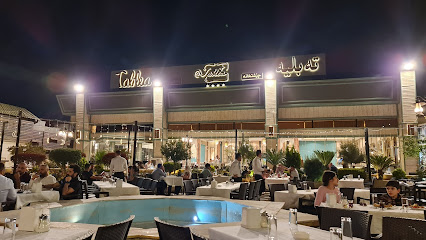
The Grill
Experience exquisite grilled delicacies at The Grill in Erbil – where culinary excellence meets inviting ambiance.
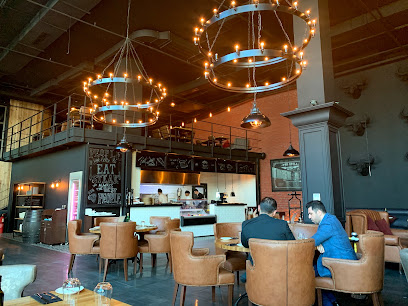
Top Organic Grill
Discover fresh flavors at Top Organic Grill in Erbil – where local ingredients meet delicious culinary creativity.
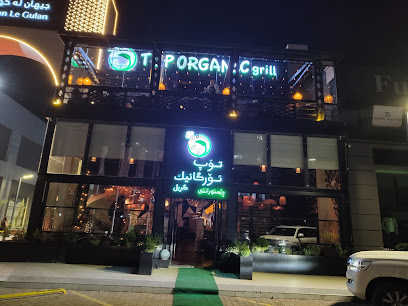
Habruri Grill
Experience authentic Chinese cuisine at Habruri Grill in Erbil – where flavors come alive in a welcoming atmosphere.
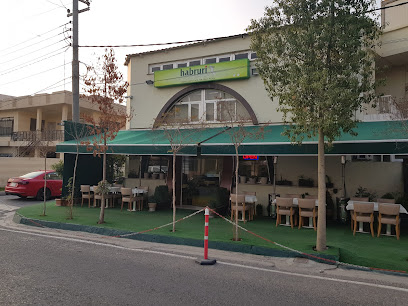
Marina Restaurant
Discover authentic Lebanese flavors in Erbil's premier dining destination at Marina Restaurant.
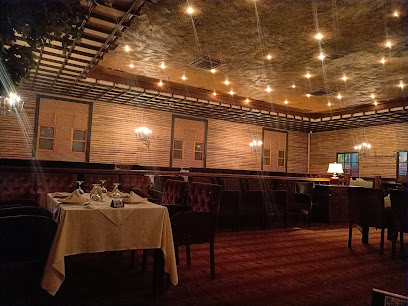
Shkar Fish Restaurant
Experience exquisite Iraqi seafood at Shkar Fish Restaurant in Erbil - where flavor meets tradition.
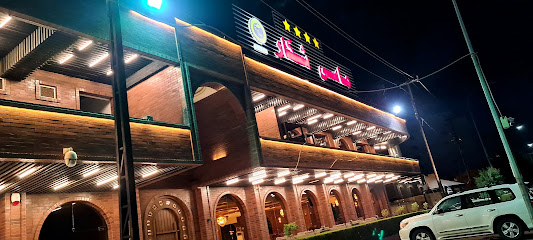
The Dates Restuarant and Cafe
Discover the flavors of Erbil at The Dates Restaurant and Cafe – where tradition meets modernity in every dish.
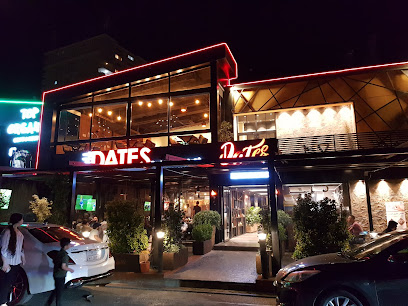
BIG LAND Restaurant
Experience authentic Kurdish cuisine at BIG LAND Restaurant in Erbil, where flavor meets hospitality in a stunning setting.
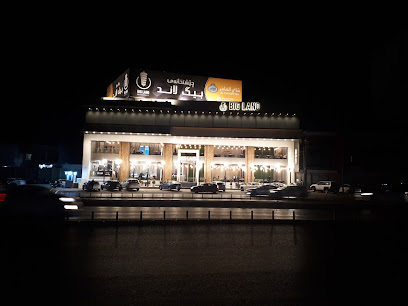
Sewar Gourmet
Experience the rich flavors of Middle Eastern cuisine at Sewar Gourmet in Erbil – where tradition meets culinary excellence.
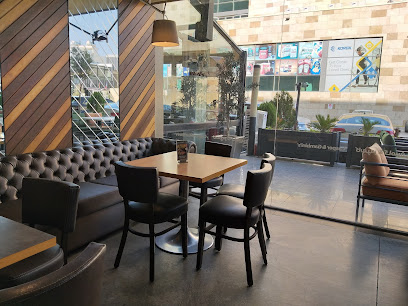
Lithos Restaurant
Experience authentic Iraqi cuisine at Lithos Restaurant in Erbil - where tradition meets flavor in every dish.
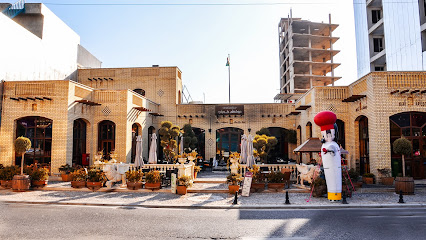
Black Tap
Discover Black Tap in Erbil: A vibrant American eatery renowned for gourmet burgers and indulgent milkshakes amidst an inviting atmosphere.
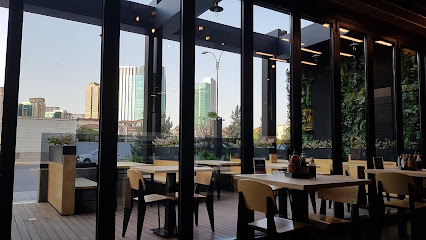
Fishland Restaurant
Experience authentic Iraqi seafood cuisine at Fishland Restaurant in Erbil—where freshness meets tradition.
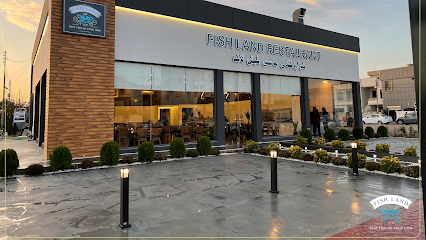
BigChefs Erbil
Experience the pinnacle of fine dining at BigChefs Erbil, where exquisite cuisine meets elegant ambiance.
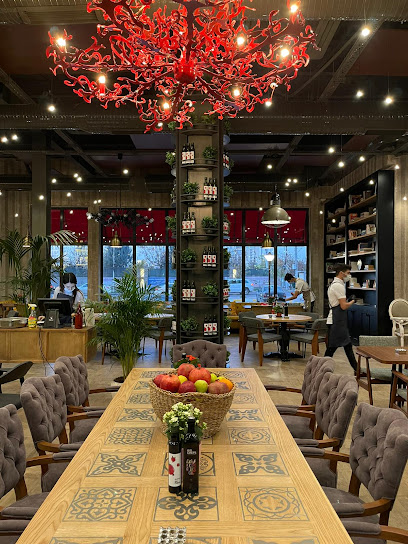
Markets, malls and hidden boutiques
Family Mall Erbil
Discover the ultimate shopping and entertainment experience at Family Mall Erbil, where fashion meets fun in the heart of the city.
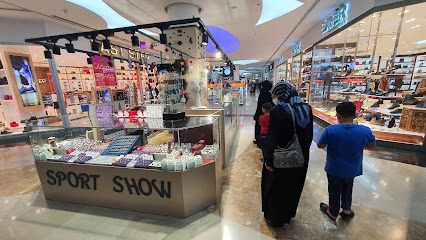
Majidi Mall Erbil
Explore the vibrant Majidi Mall in Erbil, where modern shopping meets rich cultural experiences and entertainment for all ages.
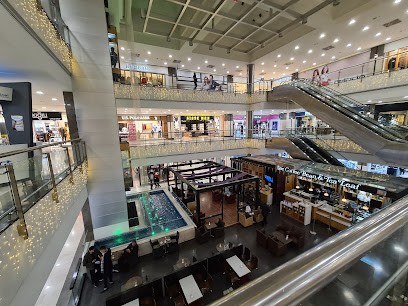
Gulan Mall
Explore Gulan Mall in Erbil for an unforgettable shopping experience filled with local and international brands, dining, and entertainment.
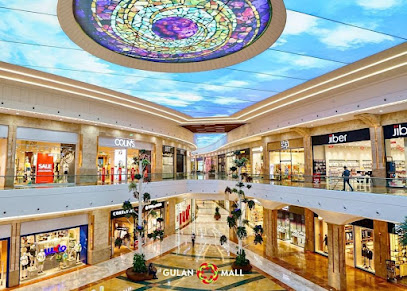
USA Bazaar
Explore the vibrant USA Bazaar in Erbil – a shopping hub filled with unique finds and delightful dining experiences.

Haval Bookstore
Explore the treasures of literature at Haval Bookstore in Erbil, where local culture meets a world of stories.
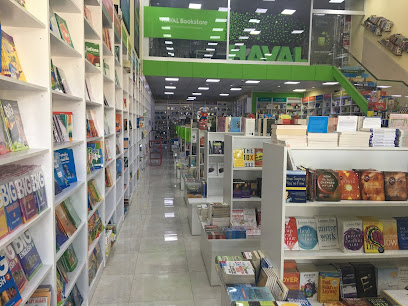
MINISO
Explore MINISO in Erbil for stylish home goods and unique lifestyle products at unbeatable prices, perfect for all your shopping needs.

لاوه شيخلله
Discover unique local crafts and modern products at لاوه شيخلله, a vibrant store in Erbil showcasing the best of Kurdish culture.
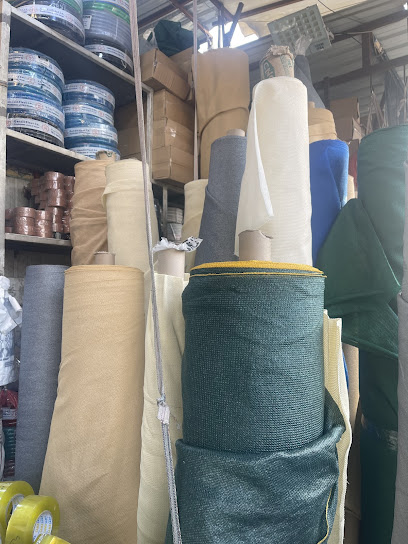
متاجر فلكلور أربيل - Qalat Antique Souvenirs
Explore the vibrant culture of Erbil at Qalat Antique Souvenirs, where every handcrafted item tells a story of tradition and artistry.
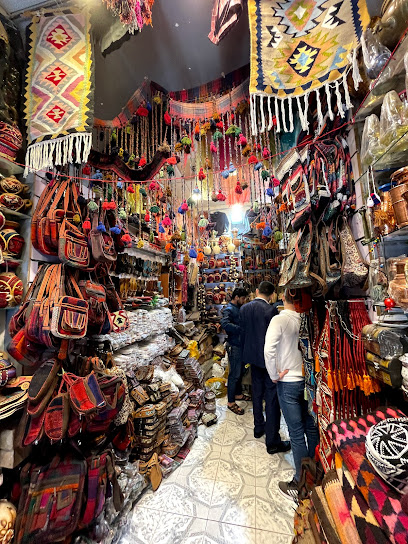
Shopping Shop - Family Mall
Discover a family-friendly shopping paradise at Shopping Shop - Family Mall in Erbil, featuring a variety of clothing stores and dining options.
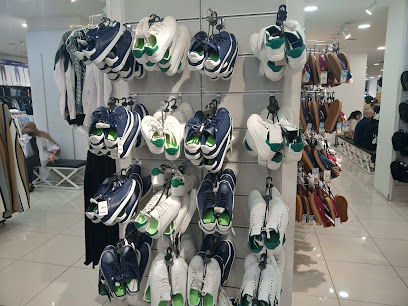
Kreenex - Erbil
Explore Kreenex in Erbil for a unique shopping experience featuring stylish furniture, logistics services, and a blend of modern and traditional designs.

IZB
Explore the artistry of handcrafted bags at IZB, a unique shop in Erbil, where tradition meets modern design.
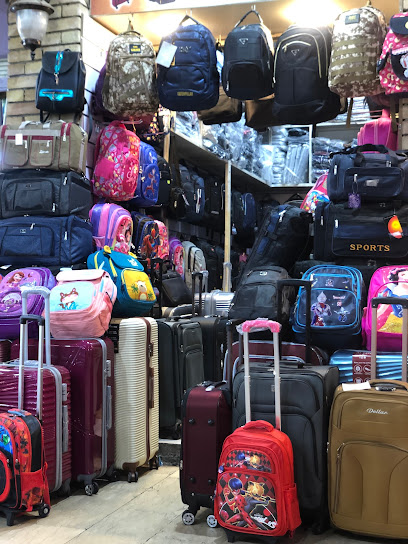
Las Store
Explore the essence of Kurdish culture through unique gifts and handcrafted souvenirs at Las Store in Erbil.
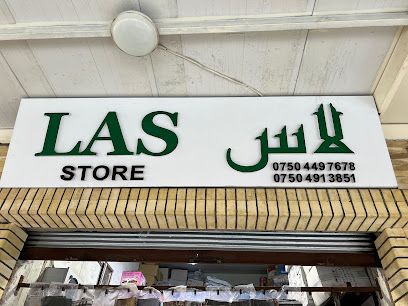
SM Collection 1982
Explore SM Collection 1982 in Erbil for trendy clothing that combines local styles with international flair, ideal for every fashion-forward tourist.
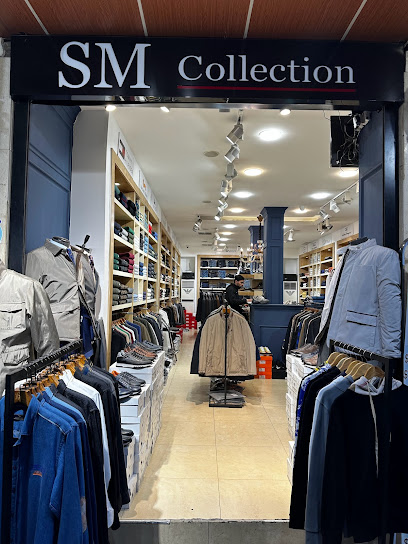
Abdulla Perfume
Discover the rich tradition of fragrance at Abdulla Perfume, a treasure trove of exquisite scents in the heart of Erbil.
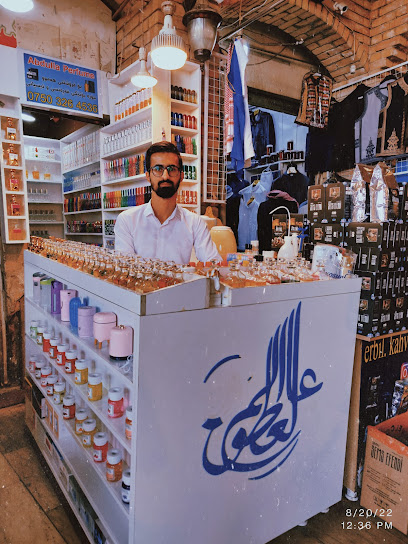
كرزات پاشا
Explore Krazat Pasha, Erbil's premier nut store, offering a delightful selection of high-quality nuts and dried fruits in a warm, inviting atmosphere.
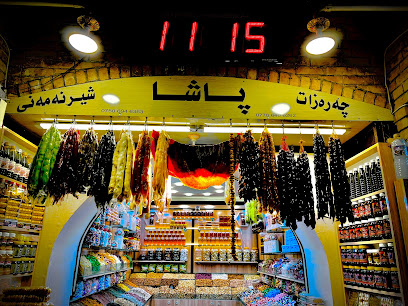
Essential bars & hidden hideouts
German Bar
Discover the lively spirit of Erbil at the German Bar, where exceptional drinks and vibrant entertainment create unforgettable nights.
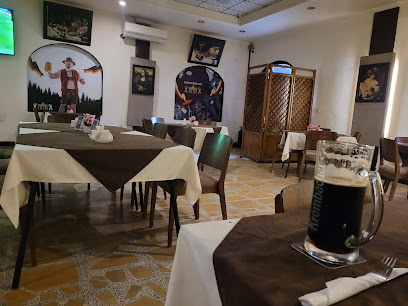
Diwan Lounge
Experience the elegance of Diwan Lounge in Erbil, where luxury meets comfort and every moment is a celebration of fine dining.
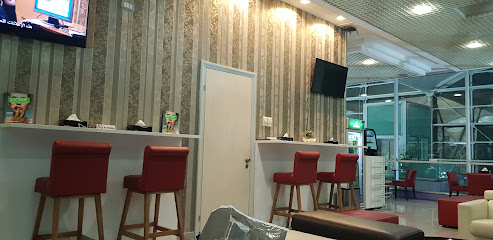
The Vinery Wine Bar
Experience the finest wines and exquisite cuisine at The Vinery Wine Bar, a premier dining destination in Erbil's Empire World Business Complex.
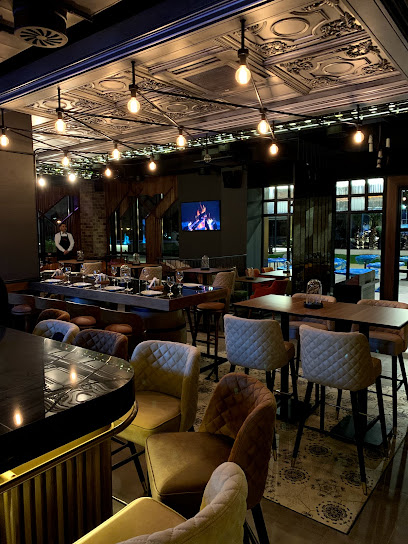
Mars Rooftop
Experience unforgettable evenings at Mars Rooftop, a premier bar in Erbil, offering stunning views and a vibrant atmosphere for all.
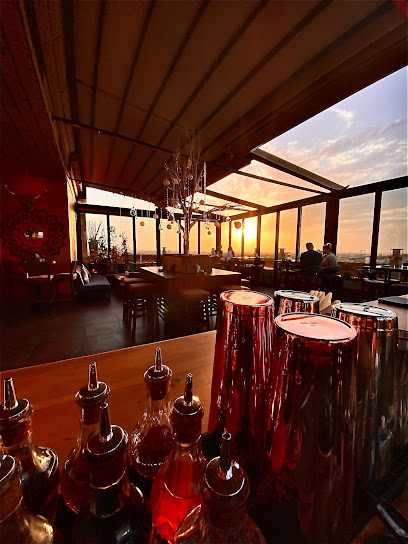
نادي الموظفين العائلي
Experience the lively nightlife at نادي الموظفين العائلي, a vibrant bar in Erbil offering a perfect blend of local charm and modern amenities.
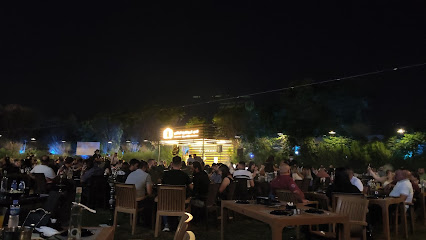
WOOD LOUNGE BAR & RESTAURANT
Discover the vibrant dining and nightlife experience at Wood Lounge Bar & Restaurant in Erbil, where delicious cuisine meets lively ambiance.
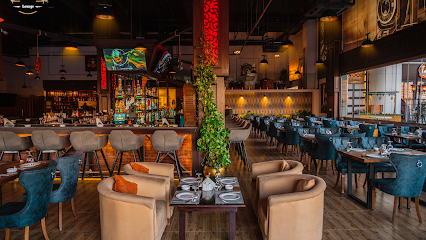
The Legends Hub
Experience a unique blend of brunch and board games at The Legends Hub, a vibrant café in Erbil offering a cozy atmosphere for food and fun.
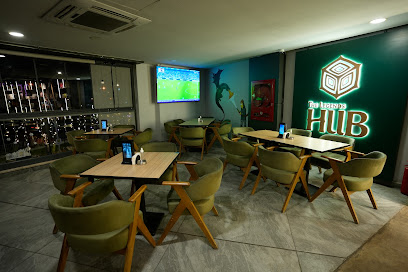
Chestnut Restaurant & Pub- چێستنەت رێستوورانت
Discover the flavors of Erbil at Chestnut Restaurant & Pub, where local cuisine meets a vibrant dining atmosphere.
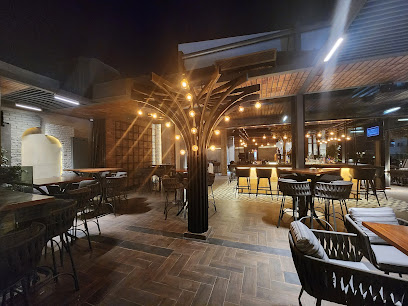
Piccadilly Pub and Restaurant
Discover the vibrant ambiance and diverse menu at Piccadilly Pub and Restaurant, a must-visit spot in Erbil for tourists seeking culture and cuisine.
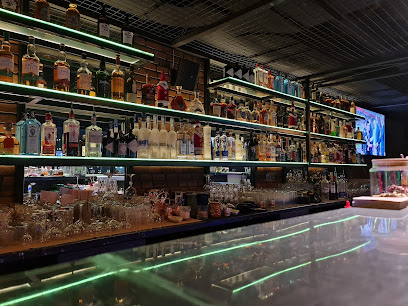
Loft
Experience the lively ambiance of Loft in Erbil, where exceptional cuisine and a vibrant bar scene await every visitor.
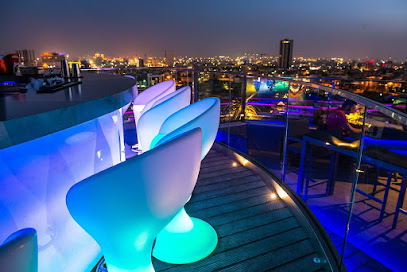
The Two Princes English Pub
Experience the charm of traditional English hospitality at The Two Princes English Pub in Erbil, blending local flavors with a vibrant atmosphere.
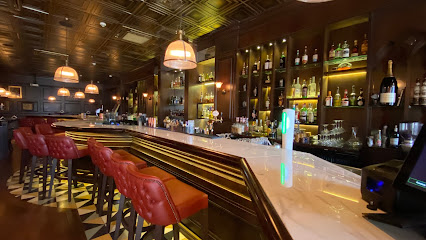
Siduri Pub - رێستورانتی سیدووری
Experience the vibrant atmosphere and delicious cuisine of Siduri Pub, a must-visit culinary destination in Erbil, Iraq.
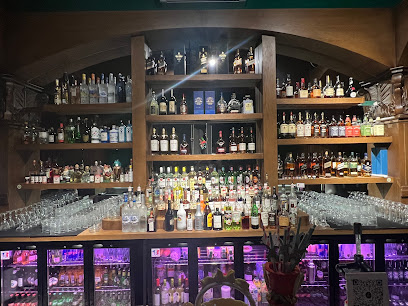
Quiet House Rest&Bar
Experience the vibrant flavors and cozy atmosphere at Quiet House Rest&Bar in Erbil, a perfect spot for food lovers and night owls alike.
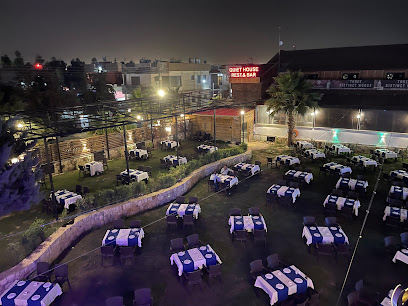
Corleone
Experience the vibrant nightlife of Corleone, a lively bar in Erbil, offering a rich selection of drinks and a warm atmosphere for tourists.
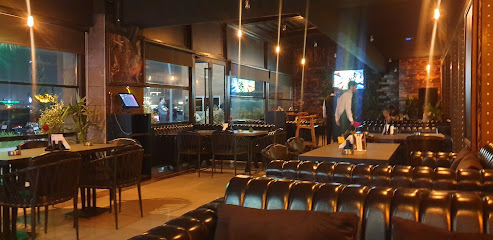
Local Phrases about Hawler
-
- Helloسڵاو
[Slaaw] - Goodbyeبابە
[Babe] - Yesبەڵێ
[Belle] - Noنەخێر
[Nekher] - Please/You're welcomeتکایە/خوازراوە
[Tkaaye/Khwazrawe] - Thank youسوپاس
[Swaapas] - Excuse me/Sorryببورە/ببوورە
[Bbore/Bboore] - How are you?چۆنیت؟
[Choniit?] - Fine. And you?باشە. تۆ چۆنی؟
[Bashe. To choni?] - Do you speak English?زمانی ئینگلیزی دەتوانیت؟
[Zmani Englishi detwaanit?] - I don't understandنەفەهمم
[Nefehemm]
- Helloسڵاو
-
- I'd like to see the menu, pleaseدەتەوێ بم بەرنامەیەک ببینم، تکایە
[Detewey bm bernameek bbenem, tkaaye] - I don't eat meatمێ خواری نەدەم
[Me khwari nedem] - Cheers!سەلامتیتان!
[Selametaytan!] - I would like to pay, pleaseدەتەوێ پارە بدەم، تکایە
[Detewey pare bdem, tkaaye]
- I'd like to see the menu, pleaseدەتەوێ بم بەرنامەیەک ببینم، تکایە
-
- Help!یارمەتی!
[Yarmeti!] - Go away!بچە!
[Bche!] - Call the Police!پۆلیس بپەخشە!
[Polis bpekheshe!] - Call a doctor!دۆکتۆر بپەخشە!
[Doktor bpekheshe!] - I'm lostلە گەڕمم
[Le geremm] - I'm illمنداڵم
[Mendalm]
- Help!یارمەتی!
-
- I'd like to buy...دەتەوێ خریداری بکەم...
[Detewey khreedari bkem...] - I'm just lookingتەنها دەچم
[Tenha dechm] - How much is it?بۆ چەندە؟
[Bo chende?] - That's too expensiveبەرزییە
[Berziye] - Can you lower the price?دەتوانیت بەری بەکات؟
[Detwaanit beri bekat?]
- I'd like to buy...دەتەوێ خریداری بکەم...
-
- What time is it?کاتێچیە؟
[Katechiye?] - It's one o'clockیەک بەرز
[Yek berz] - Half past (10)نیم لە (دە)
[Nim le (de)] - Morningصبح
[Sebhe] - Afternoonبۆیان
[Boyan] - Eveningئێوارە
[Eware] - Yesterdayدوێنێ
[Doyene] - Todayئەمڕۆ
[Amro] - Tomorrowئەتوانی
[Etewani] - 1یەک
[Yek] - 2دوو
[Dow] - 3سێ
[Se] - 4چوار
[Chwar] - 5پێنج
[Penj] - 6شەش
[Shesh] - 7حەوت
[Hewt] - 8هەشت
[Hasht] - 9نۆ
[No] - 10دە
[De]
- What time is it?کاتێچیە؟
-
- Where's a/the...?کوێیە یەکە...؟
[Koye yeka...?] - What's the address?ناونیشان چیاە؟
[Nawneeshan chyae?] - Can you show me (on the map)?دەتوانیت نیشانم بدەیت (لەسەر نەخشە؟
[Detwaanit neeshanm bdayt (leser nekhshe?] - When's the next (bus)?کاتێچی بەشێکی تریا؟
[Katechi be'sheki terya?] - A ticket (to ....)بلیت (بۆ ....)
[Bleat (bo ....)]
- Where's a/the...?کوێیە یەکە...؟
History of Hawler
-
The Erbil Citadel is one of the oldest continuously inhabited sites in the world, with a history dating back to at least the 5th millennium BC. It has witnessed the rise and fall of numerous civilizations, including the Sumerians, Akkadians, Assyrians, and Persians. The Citadel's strategic location on a tell, or archaeological mound, allowed it to serve as a stronghold and a cultural hub throughout antiquity.
-
During the Assyrian Empire, Erbil (known as Arbela) was an important city. It served as a religious center dedicated to the goddess Ishtar. The Assyrians fortified the city, leaving behind a legacy of monumental architecture and artifacts that can still be seen in the region's museums.
-
Erbil fell under the control of the Achaemenid Empire and later the Macedonian Empire following Alexander the Great's conquest. The city thrived as a center of trade and learning. Hellenistic influences brought new architectural and cultural elements, blending with the existing Mesopotamian traditions.
-
With the advent of Islam in the 7th century, Erbil became part of the Rashidun Caliphate and, subsequently, the Abbasid Caliphate. The city experienced a golden age, becoming a center of learning and culture. Many scholars, poets, and scientists called Erbil home during this period.
-
In the 13th century, Erbil faced devastation at the hands of the Mongol Empire. The city was sacked, and its population suffered greatly. Despite this, Erbil managed to rebuild and retain its importance in the region over time.
-
Erbil became part of the Ottoman Empire in the 16th century. During Ottoman rule, the city continued to develop its infrastructure and trade networks. The influence of Ottoman architecture can still be observed in some of Erbil's historical buildings.
-
In the 20th century, Erbil became part of the newly formed state of Iraq. The city has since experienced significant growth and modernization, particularly after the establishment of the Kurdistan Regional Government in the 1990s. Today, Erbil is a thriving metropolis with a unique blend of ancient history and modern culture.
Hawler Essentials
-
Hawler, also known as Erbil, is accessible via Erbil International Airport (EBL), which has connections to major cities in the Middle East, Europe, and Asia. From the airport, you can take a taxi or arrange for a hotel shuttle to reach the city center. Roads leading to Hawler are generally well-maintained, making it feasible to travel by car from other parts of Iraq or neighboring countries.
-
Once in Hawler, you have several transportation options. Taxis are the most convenient and widely used mode of transport, and they are relatively affordable. Ride-hailing apps like Careem are also popular. For public transportation, minibuses (known as 'kareem') operate on fixed routes within the city. Renting a car is another option, but be aware of local driving conditions and regulations.
-
The currency used in Iraq is the Iraqi Dinar (IQD). Credit and debit cards are accepted in many hotels, restaurants, and larger shops, but it's advisable to carry cash for smaller establishments and markets. ATMs are available throughout the city, and it's a good idea to withdraw sufficient cash for your daily needs.
-
Hawler is generally considered safe for tourists, but it is always important to remain vigilant. Avoid walking alone at night in less populated areas and keep an eye on your belongings in crowded places. Certain areas on the outskirts of the city have higher crime rates, so it's best to stick to well-known neighborhoods and tourist areas.
-
In case of an emergency, you can dial 104 for police, 115 for fire services, and 122 for medical emergencies. It is highly recommended to have travel insurance that covers medical emergencies. Major hospitals in Hawler, such as the West Erbil Emergency Hospital, offer good medical services. Pharmacies are also available for minor health issues.
-
Fashion: Do dress modestly, particularly when visiting religious sites. Avoid wearing revealing clothing. Religion: Do respect local customs and religious practices. Remove your shoes and cover your head when entering mosques. Public Transport: Do be respectful and give up your seat to elderly passengers. Don't eat or drink on public transport. Greetings: Do greet people with a handshake. A slight bow of the head is also a sign of respect. Eating & Drinking: Do try local dishes and accept food offerings graciously. Don't refuse hospitality, as it is considered impolite.
-
To experience Hawler like a local, visit the bustling Qaysari Bazaar, where you can find everything from spices to traditional clothing. Engage with locals, who are often friendly and eager to share their culture and history. Don't miss the opportunity to visit the ancient Citadel of Erbil, a UNESCO World Heritage Site, and stroll through the lively Sami Abdulrahman Park for a taste of local life.
Nearby Cities to Hawler
-
Things To Do in Mosul
-
Things To Do in Kirkuk
-
Things To Do in Dohuk
-
Things To Do in Sulaymaniyah
-
Things To Do in Baghdad
-
Things To Do in Kapan
-
Things To Do in Karbala
-
Things To Do in Vayk
-
Things To Do in Goris
-
Things To Do in Jermuk
-
Things To Do in Yerevan
-
Things To Do in Najaf
-
Things To Do in Tsaghkadzor
-
Things To Do in Aparan
-
Things To Do in Dilijan








